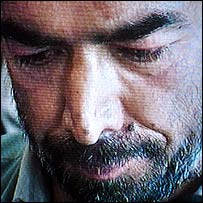2Cor. 6:1 Working together with him, then, we appeal to you not to receive the grace of God in vain...3 We put no obstacle in anyone’s way, so that no fault may be found with our ministry, 4 but as servants of God we commend ourselves in every way: by great endurance, in afflictions, hardships, calamities, 5 beatings, imprisonments, riots, labors, sleepless nights, hunger; 6 by purity, knowledge, patience, kindness, the Holy Spirit, genuine love; 7 by truthful speech, and the power of God; with the weapons of righteousness for the right hand and for the left; 8 through honor and dishonor, through slander and praise. We are treated as impostors, and yet are true; 9 as unknown, and yet well known; as dying, and behold, we live; as punished, and yet not killed; 10 as sorrowful, yet always rejoicing; as poor, yet making many rich; as having nothing, yet possessing everything...our heart is wide open...16 What agreement has the temple of God with idols? For we are the temple of the living God; 2 Cor. 7:1 Since we have these promises, beloved, let us cleanse ourselves from every defilement of body* and spirit, bringing holiness to completion in the fear of God.
Today is the day of salvation (v.2). We are working with God to convince people of this reality and beauty that they can be temples of the living God. We urge people to press on towards cleansing themselves and bringing holiness to completion in the fear of God (7:1). This is how people receive the grace of God in vain. They are endowed with mercy upon mercy, teaching, the Body of believers, and yet they remain living without the reality of Christ in them (Col. 1:27). He is the hope of glory, yet to be revealed.
Paul is not coy about teaching that God is in control of all things, even the strength in which we pursue holiness. However, he is not shy about saying that we work with God. This does not mean he is a synergist - believing that things happen when we “help” God and he “helps” us. He has already established in 4:7 that the surpassing power is not from us, but from God. What power? The power to proclaim Jesus as Lord (4:5) and to endure suffering and afflicting (4:8), and death (4:10). This is all to make Jesus look good - to look like the life-sustaining, hope-giving Savior he is. This is why we proclaim him; we do it in the strength that he supplies (1 Peter 4:11).
Paul’s point in these chapters, indeed the whole book, is to spur the Corinthian church on toward perfected holiness. This is a goal that we will not reach in this life, but we must press on towards it. We are called to be holy as he is holy (1 Peter 1:15; Lev. 19:2; Eph. 1:4; 5:27). This is not a peripheral call for the Christian. This is essential to it. If we are saved by grace, the natural result is that we will pursue holiness because we want to be like our great God. We want to grow in our likeness to him because he will be glorified that way. Just like children want to grow up to be like their favorite sports or movie star and so emulate their mannerisms and language, so do children of God.
How? We do it in the grace and mercy and power and strength that God pours out on us everyday. These things are in a measure that surpasses any weakness we have. Remember that the power in the jars of clay is all-surpassing. It supersedes our frailties and inabilities! Let us pursue perfected holiness everyday in the power he gives us from the Holy Spirit living within us until the the day he returns and we will be like him (1 Jn 3:2; Phil. 3:10). |









